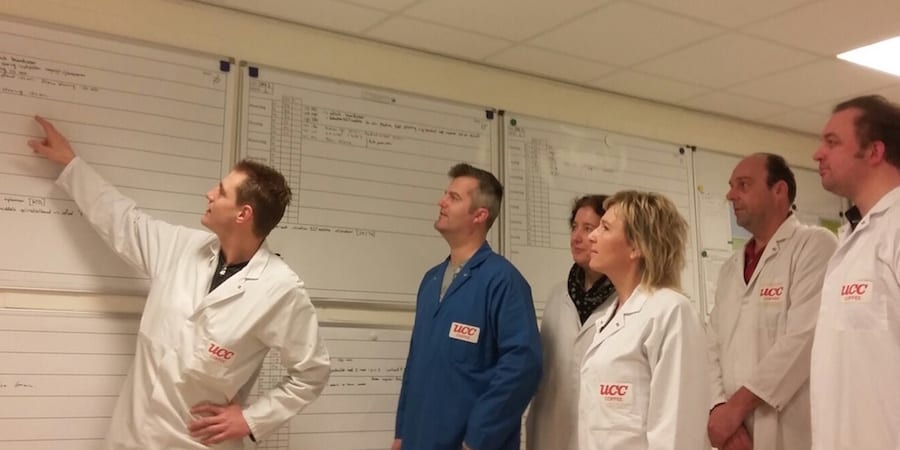
How hypergrowing BlaBlaCar kept lean startup spirit alive
INTERVIEW – At the recent Lean IT Summit, Planet Lean spoke to BlaBlaCar, a Paris-based company that has managed to keep the startup way of thinking alive in the face of the hypergrowth it experienced in the past four years.
Interviewee: Christian Jennewein, Tech Manager, BlaBlaCar
BlaBlaCar is a long-distance ridesharing community. It connects drivers and passengers who are willing to travel together and to split the cost of a trip. In the past four years, the company has seen the number of its members grow exponentially from 1 million in 2011 to 20 million this year. The service is available in 19 countries.
Roberto Priolo: One of the principles that you live by at BlaBlaCar is “Fail. Learn. Succeed.” Can you explain what this ideas means to you and the rest of tech team?
Christian Jennewein: This is one of the most important principles for us. It encourages us to go ahead and try something out, telling us that we don’t need be afraid of failing. Failure is fine, so long as you take home a lesson and share it.
In IT, the changes we implement are tiny and extremely frequent, and the improvements incremental. This gives us an opportunity to learn continuously. When something goes wrong, we write up the lessons learned from the failure (a post-mortem) and share them with others in the team. We experience failure at least twice a week, and it is part of our job to learn from our mistakes and come up with a plan to ensure the same failure doesn’t happen again.
This idea is now inherent to the way we do things. It is obvious to us that without failure there can be no learning. Look at children: at first they can’t walk and they fall, but they learn from their mistake and then try again until they get it right. The same is true in a company: you need to allow your people to fail, so that they will learn and grow much faster.
RP: Considering BlaBlaCar’s hyper-growth, how hard was it to keep the startup ethos and way of thinking alive?
CJ: I don’t think it was difficult, mainly because we succeeded in identifying the potential risk of losing this spirit very early on, and addressed it immediately. We came up with our values in early 2013 (back then there was only 50 people in the organization), even though I think that at that time we didn’t realize how important they would be for us in the future.
I see our values at play every day in the tech team, and this is what made our growth fairly painless and what allowed us to maintain the startup spirit. We have people, including myself, whose role is to insist on these values and to ensure that they remain a critical part of our way of working.
RP: How did the tech team at BlaBlaCar evolve? What were the main milestones as the company scaled up?
CJ: The first big change was definitely the introduction of scrum in 2013 to formalize the way we interact with one another.
Scrum principles remained in use as the team grew: in mid-2014 we went international and started working with a team of developers in Romania, which meant we had to switch to English for everything concerning our operations.
The next milestone was at the end of 2014 – what we refer to as the Age of Maturity – when the team expressed its interest in moving away from scrum and in switching to Kanban. This somehow softened the rules of how we did things (in the meantime, we fully internationalized by opening an office in Warsaw).
The newest change, which we only just implemented, is the shift to mission-driven cross-functional project teams. We think this type of configuration will allow us to best meet the organization’s needs.
RP: During your presentation at the Lean IT Summit, you said BlaBlaCar is “lean by nature” – can you explain what you mean by that?
CJ: I think that our way of working as a tech team has evolved from the prescriptive use of scrum tools and principles to a place where we give people more autonomy and encourage them to make decisions for themselves, using their own judgment.
In this sense I think BlaBlaCar is a company that is lean by nature.
We haven’t really chosen to apply any specific framework to our work, but we have certainly adopted a lean mindset. As far as I understand it, lean is not a recipe, anyway.
THE INTERVIEWEE

Read more


FEATURE – The problems agricultural businesses encounter every day can be solved using simple concepts of lean maintenance, resulting in considerable gains.


FEATURE – In lean, we talk about PDCA all the time… but do we actually practice it as we should? The authors discuss what makes for successful continuous improvement.


FEATURE – Repetitive flexible supply is a very effective method to level production scheduling, but as a FMCG company in the Netherlands found out, sometimes a number of conditions must be met before the approach becomes viable.


BOOK REVIEW - In the first of a series of Q&As on the recently published novel Lead With Respect by Freddy and Michael Ballé, Dan Jones explains why this book is a must-read.

